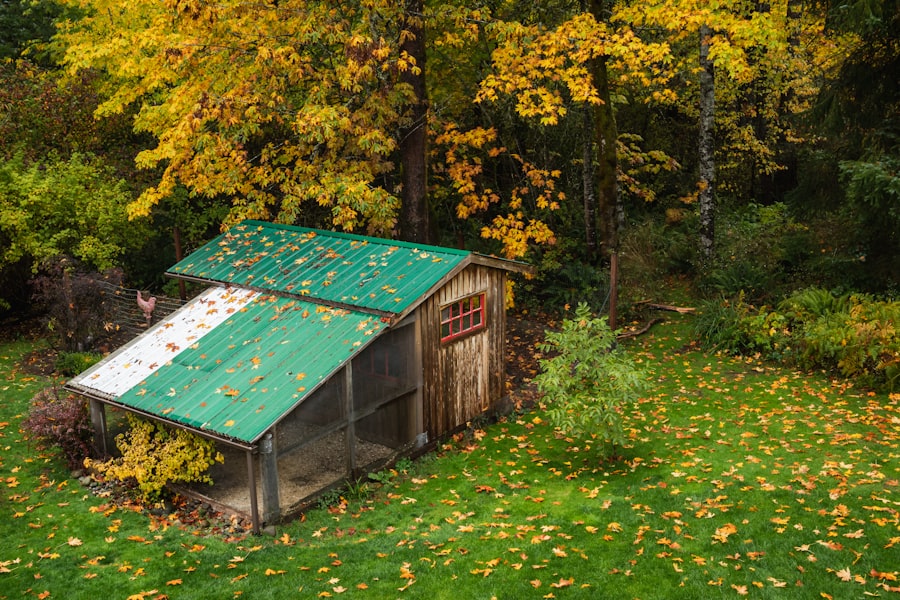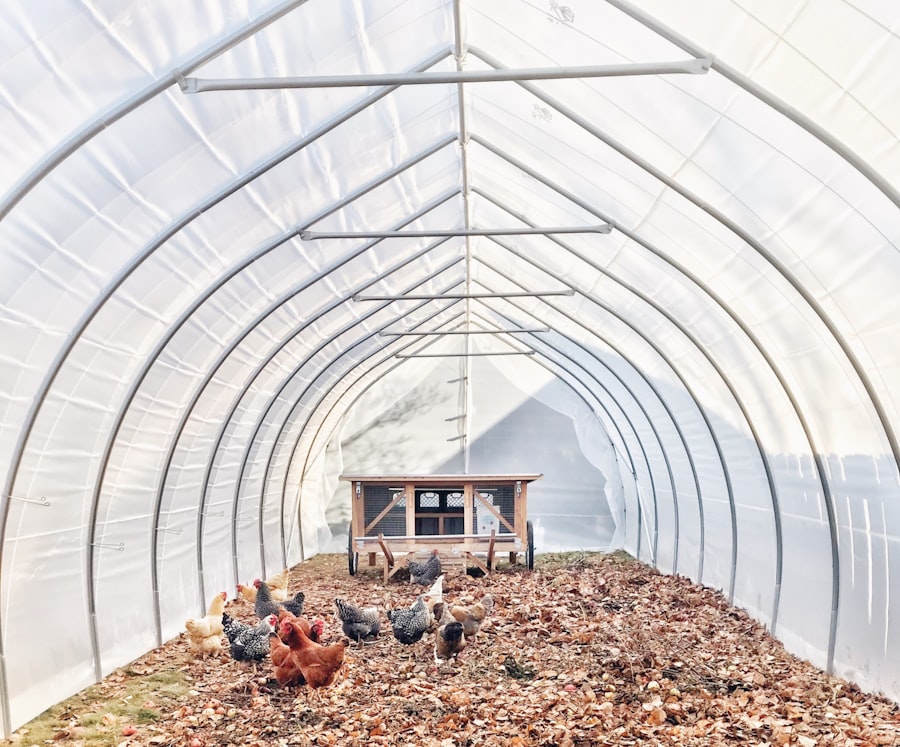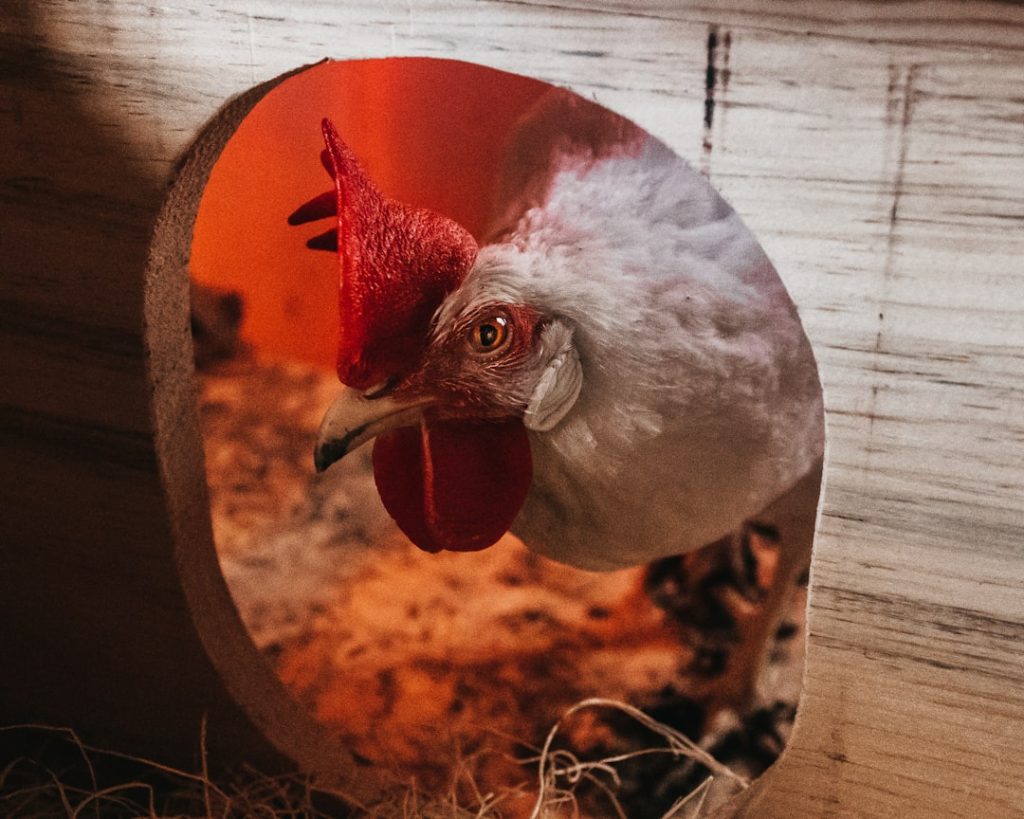When selecting a chicken breed for a backyard flock, several factors should be considered. Climate is a crucial consideration, as some breeds are better adapted to cold weather, while others thrive in warmer conditions. The intended purpose of the flock is also important; certain breeds are known for their egg-laying capabilities, while others are valued for meat production.
Temperament is another factor to consider, as some breeds are docile and friendly, while others may be more aggressive. The size of the chicken is an important consideration, especially for those with limited space. Smaller breeds may be more suitable for confined areas, while larger breeds can be appropriate for spacious environments.
Additionally, egg color preferences can influence breed selection, as different breeds produce eggs in various colors, including brown, white, blue, and green. By carefully evaluating these factors, poultry keepers can select chicken breeds that are well-suited to their specific requirements, environment, and preferences.
Table of Contents
Key Takeaways
- Choose a breed of chicken that suits your climate, space, and purpose, whether it’s for eggs, meat, or both.
- Build a secure and spacious coop and run for your chickens, providing protection from predators and the elements.
- Ensure your chickens have access to a balanced diet and clean water at all times to maintain their health and productivity.
- Regularly monitor and maintain your chickens’ health, including vaccinations, parasite control, and addressing any injuries or illnesses.
- Understand and manage chicken behavior, including pecking order, aggression, and nesting habits, to create a harmonious flock environment.
- Collect eggs regularly and store them properly to maintain freshness and quality for consumption.
- Implement proper waste management practices to minimize odor and maintain a clean and healthy environment for your chickens and surrounding areas.
Building a Coop and Run
Designing the Perfect Coop
Once you’ve chosen the right breed of chicken for your backyard flock, it’s time to think about building a coop and run for your feathered friends. The coop is where your chickens will roost at night and lay their eggs, so it’s important to provide them with a safe and comfortable space. When building a coop, you’ll want to make sure it is well-ventilated and provides plenty of natural light.
Essential Features of a Coop
Additionally, you’ll want to include nesting boxes where your hens can lay their eggs, as well as perches for them to roost on at night. It’s also important to consider predator-proofing your coop, as there are many animals that would love to make a meal out of your chickens.
Creating a Safe and Fun Run
In addition to a coop, you’ll also need to build a run where your chickens can stretch their legs and scratch around for bugs and other tasty treats. When building a run, it’s important to provide at least 10 square feet of space per chicken to ensure they have plenty of room to move around. You’ll also want to make sure the run is secure and predator-proof, as well as providing some shade and shelter from the elements.
By taking the time to build a well-designed coop and run, you can provide your chickens with a safe and comfortable home where they can thrive.
Feeding and Watering Your Chickens

Feeding and watering your chickens is an essential part of caring for your backyard flock. When it comes to feeding, it’s important to provide your chickens with a balanced diet that includes a mix of grains, protein, and calcium. You can purchase commercial chicken feed at your local farm supply store, or you can mix your own feed using ingredients like corn, soybeans, and oyster shells.
Additionally, it’s important to provide your chickens with plenty of fresh water at all times, as dehydration can be a serious issue for poultry. In addition to their regular feed, chickens also enjoy scratching around for bugs and other tasty treats. You can supplement their diet with kitchen scraps like fruit and vegetable peels, as well as mealworms or other protein-rich snacks.
It’s important to monitor your chickens’ food intake and adjust their diet as needed based on their age, activity level, and overall health. By providing your chickens with a balanced diet and plenty of fresh water, you can ensure they stay healthy and happy.
Providing Proper Health Care
Just like any other pet, chickens require proper health care to ensure they stay happy and healthy. One of the most important aspects of chicken health care is disease prevention. It’s important to keep your coop clean and free of pests like mites and lice, as well as regularly inspecting your flock for signs of illness.
Additionally, it’s important to provide your chickens with regular access to fresh air and sunlight, as well as providing them with a balanced diet to support their immune system. In addition to disease prevention, it’s important to be prepared to provide first aid if one of your chickens becomes injured or ill. Having a basic first aid kit on hand that includes items like bandages, antiseptic spray, and electrolytes can help you quickly address any health issues that arise.
It’s also important to establish a relationship with a veterinarian who is experienced in poultry care so that you have someone to turn to if your chickens require more advanced medical attention. By staying proactive about disease prevention and being prepared to address any health issues that arise, you can ensure your flock stays healthy and happy.
Managing Chicken Behavior
Understanding and managing chicken behavior is an important aspect of caring for a backyard flock. Chickens are social animals that have their own unique personalities and behaviors. It’s important to spend time observing your flock so that you can understand their individual quirks and tendencies.
Additionally, it’s important to establish yourself as the leader of the flock by setting clear boundaries and expectations. One common behavior issue that chicken owners may encounter is aggression within the flock. This can be caused by factors like overcrowding or lack of resources like food and water.
By providing plenty of space and resources for your chickens, you can help prevent aggressive behavior from developing. Additionally, it’s important to handle your chickens regularly from a young age so that they become accustomed to human interaction and are less likely to become aggressive as they mature.
Collecting and Using Eggs

The Importance of Daily Egg Collection
When it comes to collecting eggs, it’s essential to check the nesting boxes at least once a day. This ensures that you gather the eggs before they become soiled or broken. Handling the eggs gently is also crucial to prevent cracking or breaking before you have a chance to use them.
Culinary Delights with Fresh Eggs
Once you’ve collected your eggs, the possibilities for using them in the kitchen are endless. From baking delicious cakes and cookies to making fluffy omelets and quiches, fresh eggs can elevate any dish. You can also preserve eggs by freezing or pickling them, allowing you to enjoy them throughout the year.
The Benefits of Raising Your Own Chickens
By collecting and using your chickens’ eggs, you can enjoy delicious and nutritious meals straight from your backyard. This not only saves you money on grocery bills but also provides a sense of accomplishment and connection to the food you eat.
Dealing with Chicken Waste and Odor
Dealing with chicken waste and odor is an inevitable part of raising a backyard flock, but there are several strategies you can use to manage it effectively. One important step is regularly cleaning out the coop and run to remove soiled bedding and waste. This not only helps control odor but also prevents the buildup of harmful bacteria that can affect your chickens’ health.
Another strategy for managing chicken waste is composting it into nutrient-rich fertilizer for your garden. Chicken manure is high in nitrogen and other essential nutrients that can help improve soil fertility and promote healthy plant growth. By composting your chicken waste, you can turn what might otherwise be considered a nuisance into a valuable resource for your garden.
In conclusion, raising chickens in your backyard can be a rewarding experience that provides you with fresh eggs, natural pest control, and endless entertainment. By choosing the right breed of chicken, building a well-designed coop and run, providing proper care and nutrition, understanding chicken behavior, collecting and using eggs, and managing waste effectively, you can create a thriving flock that brings joy to your life while contributing to a more sustainable lifestyle.
If you’re looking for more information on keeping chickens, you should check out this article on Snaplock Chicken Coop from PoultryWizard.com. It provides valuable insights on how to provide a safe and comfortable living space for your chickens.
FAQs
What are the basic requirements for keeping chickens?
Chickens require a secure and spacious coop, access to fresh water, a balanced diet of feed, and protection from predators.
What type of housing do chickens need?
Chickens need a well-ventilated and predator-proof coop with nesting boxes for laying eggs and roosting bars for sleeping.
What should I feed my chickens?
Chickens need a balanced diet of commercial chicken feed, supplemented with kitchen scraps, grains, and occasional treats like mealworms or fruits.
How do I keep my chickens healthy?
Regularly clean the coop, provide access to fresh water, and monitor for signs of illness. Additionally, provide proper nutrition and access to sunlight and fresh air.
How do I protect my chickens from predators?
Secure the coop with sturdy fencing, lock the coop at night, and consider using motion-activated lights or alarms to deter predators.
How do I care for chicken eggs?
Collect eggs daily, store them in a cool place, and clean them if necessary. Rotate the eggs to ensure they are used in a timely manner.
Meet Walter, the feathered-friend fanatic of Florida! Nestled in the sunshine state, Walter struts through life with his feathered companions, clucking his way to happiness. With a coop that’s fancier than a five-star hotel, he’s the Don Juan of the chicken world. When he’s not teaching his hens to do the cha-cha, you’ll find him in a heated debate with his prized rooster, Sir Clucks-a-Lot. Walter’s poultry passion is no yolk; he’s the sunny-side-up guy you never knew you needed in your flock of friends!







